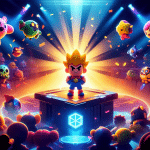From the quiet intensity of Bridge to the high-stakes bluffing of Poker, strategic games sharpen your mind by pushing your memory, logic, and decision‑making in ways everyday life doesn’t.
Play Smart: How Bridge and Other Strategic Games Keep Your Brain Fit

Play Smart: How Bridge and Other Strategic Games Keep Your Brain Fit
Keeping your brain fit and sharp requires a little more than watching a show or doing the occasional crossword. If you really want to challenge your mind, you need games that push your memory, logic, and decision-making in ways that daily life doesn’t. Whether you prefer shuffling a deck of cards, revisiting a classic board game, or jumping into an online match against strangers across the globe, strategic games offer serious mental workouts. Games that reward planning and problem-solving can boost brain fitness, especially those that require critical thinking, memory, and a bit of strategy.
Poker
Poker is a mental game that constantly tests your ability to adapt and stay calm under pressure. Not only does the game test your math skills, but it also challenges your emotional control and tests your ability to read people. Poker requires you to always calculate the odds, pay attention to your opponent’s behavior, and make quick decisions on whether now is the right time to bluff, fold, or go all in.
Several online gambling platforms, like the list of CasinoBeats’ new casino picks, offer several different Poker formats, each requiring a level of strategic thinking. For instance, live dealer Hold’em is all about reading opponents and playing long-term strategy. These live dealer games require real-time decision-making, giving your brain even more to process. In Three Card Poker, you need to make quick decisions. Stud Poker requires memory and careful observation of face-up cards. Whatever version of the game you choose, poker keeps your brain fit since you are always thinking ahead.
Bridge
Bridge is often called “the thinking person’s card game,” since it combines math, memory, and logic. It also requires teamwork and is an endlessly challenging experience. Played in pairs, Bridge requires players to interpret bids, plan several steps, and basically guess what the opponents might do next.
Unlike solo games, Bridge demands silent communication with a partner. This adds a layer of complexity to the game, but it also means sharpening communication skills and strategic coordination. Studies also suggest that playing Bridge regularly helps delay cognitive decline, especially in older adults, while reinforcing memory and attention. Since every hand in Bridge is different, your brain never gets to relax.
Caribbean Stud and Pai Gow Poker
Some lesser-known casino games also offer mental benefits. Caribbean Stud requires you to compete against the dealer through a system that benefits players who make strategic bets and solve mathematical problems quickly. Pai Gow Poker challenges players to split seven cards into two hands in the most strategic way possible. The games need players to use logical thinking while assessing probabilities and making strategic decisions in high-pressure situations. These games provide mental challenges even though they do not receive the same level of popularity as Texas Hold’em or blackjack.
Chess
Few games are as demanding as chess. Every chess piece, every move you choose to make, has a purpose and requires critical thinking. Your success, however, depends on trying to figure out your opponent’s next move far in advance. The competition requires mental strength because pattern recognition, planning, and adaptability serve as essential elements. Through chess, you can develop your ability to focus while improving your problem-solving skills and learning to remain composed during tense situations. Since the game is always different from one match to the next, even a casual game of chess is a great way to train your brain.
Sudoku and Puzzle Games
Not every brain-boosting game needs a partner. The mental challenges of Sudoku, crosswords, and logic puzzles differ from one another. The games need players to focus while they recognize patterns and keep several pieces of information in their minds at the same time. These puzzles are especially valuable as we age. They help keep working memory strong and encourage mental endurance. The tasks seem simple, yet they need real focus, resulting in better memory retention and mental endurance throughout time.
Blackjack
Blackjack requires players to perform quick mental calculations when they consider potential risks against potential gains. You need to calculate probabilities and assess your chances, and make a decision for each hand in just a few seconds. The fast pace of the game requires immediate decisions, so you must avoid overthinking because this speed pushes your brain to process numbers quickly while maintaining alertness. Playing blackjack regularly will help you improve your working memory and number fluency and make you more confident in your snap judgments.
Real-Time Strategy Games
The introduction of online games brings a new perspective to brain training through RTS games like StarCraft and Age of Empires. RTS games test your multitasking skills through their requirement of fast decisions. You’re managing resources, deploying units, and responding to enemy moves, all in real time. RTS titles differ from turn-based games because they maintain continuous pressure on players, which demands quick thinking, strategic planning, and mental agility. The process requires extensive work to develop substantial mental power.
Role-Playing Games (RPGs)
These games offer deep, story-driven experiences that stretch your mind in subtle but powerful ways. Your memory and reasoning abilities develop as you navigate characters through intricate storylines, make choices that affect the narrative, and handle items or abilities. RPGs require you to monitor multiple storylines while keeping track of past events, upcoming events, and important decision points. The immersive storytelling technique creates an engaging experience that helps you maintain your attention while making decisions in a changing environment. It’s mental training that doesn’t really feel like work.
Massive Multiplayer Online Games (MMOs)
MMOs add a layer of social complexity to gaming that’s often overlooked. The massive online games require players to collaborate with each other while dealing with unexpected events and sustaining continuous communication. Your actions in the game extend beyond the game itself since you are actually communicating with other players. The social environment improves your communication skills while developing teamwork capabilities. MMOs show that cognitive fitness requires more than logical thinking and memory because it involves real-time thinking and social interaction with others.
Conclusion
Games that make you think are so much more than just entertainment. They’re mental training tools. From the logical teamwork of Bridge to the psychological warfare of poker, each game offers unique ways to train your brain and sharpen your mind. The secret to keeping your brain fit is variety and consistency. By integrating different kinds of strategic games into your daily routine, not only do you keep your brain flexible, but you also ensure it remains focused and ready for whatever comes next.








